For non-Spanish speakers:
You can translate this blog using Google translator widget. And you can always comment in your language, of course!
Yellow texts are in English
montgomery clift
montgomery clift

FICHA TÉCNICA
Título doblado: Sitiados
Año: 1950
Director: George Seaton
Guión original: George Seaton
Música: Alfred Newman
Vestuario: Bobbie Brox
Fotografía: Charles C. Clarke
Efectos fotográficos especiales: Fred Sersen
Montaje: Robert Simpson y William Reynolds
Ingenieros de sonido: Charles Hisserich y Roger Heman.
Dirección artística: Lyle R. Wheelery Russell Spencer.
Orquestaciones: Edward Powell
Producción: William Perlberg
País: EE.UU.
Distribuida por: Twenty Century Fox
Duración: 120 minutos
Género: Bélica (II Guerra Mundial)
Blanco y Negro
Rodada en Frankurt
Otras localizaciones: base aeronaval de Tempelhof (Berlín Oeste), Azores (Portugal), Berlín, base aérea de Rhein-Main (Frankfurt), Schofield Barracks, Wilkina Drive, O'ahu (Hawaii), interiores rodados en los Estudios Ufa (Berlín).
Estreno: 26 de abril de 1950
1 Nominación a los Globos de Oro
REPARTO
Montgomery Clift ............................ Sargento de 1ª clase Danny MacCullough
Paul Douglas ...................................... Sargento Henry 'Hank' Kowalski
Cornell Borchers ........................... Frederica BurkhardtBrunie Löbel .................................................................. GerdaO.E. Hasse ...................................................................... StieberDanny Davenport .......................................................... reclutaFritz Nichlisch ................................................................ GuntherInterpretándose a sí mismos:Capitán Dante V. Morel, capitán John Mason, capitán Gail Plush, capitán Mack Blevins, mayor R.L. Heltzl, capitán William A. Stewart, teniente Alfred L. Freidburger, teniente Gerald Arons, teniente James Wilson, teniente Richard A. Kellogg, teniente Roy R. Steele, sargento James H. Blankenship, sargento Harold E. Bamford, sargento D.R. Simmons, sargento O.B. Schultz, sargento Andrew Shamless, sargento Elmer Garret, sargento Billy Pierson, sargento Herman Dornbush, cabo Donald R. Neil, soldado William L. Davenport, soldado William J. Hardiman,, corresponsal de la Ap Richard O'Malley, corresponsal de la Abc Lyford Moore.Curiosidades:The film was made in occupied Germany. All scenes were photographed in the real locations associated with the story, including episodes in the American, French, British and Russian sectors of Berlin.With the exception of Montgomery Clift and Paul Douglas, all military personnel in the film were actual members of the US military on duty in Germany at the time.Associated Press correspondent Richard O'Malley and ABC News correspondent Lyford Moore play themselves in the film. All the US officers appearing in the movie kept their actual rank except one, John R. Mason, who was "demoted" to the rank of sergeant for the story.
During the filming, they would get waivers signed by those who were in a shot and they thought would be in the finished film and paid them $500. Some men appeared but were never paid and some who were paid had their appearances end up on the cutting room floor.
"Screen Director's Playhouse" broadcast a 60 minute radio adaptation of the movie on January 18, 1951 with Paul Douglas reprising his film role.
Resumen (de la Imdb)(English text)In 1948, the Soviet Union blockades the Allied sectors of Berlin to bring the entire city under their control. A semi-documentary about the resulting Berlin Airlift gives way to stories of two fictitious U.S. Air Force participants: Sgt. Hank Kowalski, whose hatred of Germans proves resistant to change, and Sgt. Danny McCullough, whose pursuit of an attractive German war widow gives him a crash course in the seamy side of occupied Berlin.* Ficha en Imdb.No disponible en Dvd en España, pero salió en una colección del periódico Abc (ver post).

FICHA TÉCNICATítulo doblado: Río Rojo
Año: 1946 (distribuida en 1948)
Director: Howard Hawks
Guión adaptado: Bordon Chase y Charles Schnee
Guión original: relato "The Chisholm Trail" de Borden Chase, publicado en el The Saturday Evening Post, de Borden Chase
Música original y canción "Settle Down": Dimitri Tiomkin.
Fotografía: Russell Harlan
Montaje: Christian Nyby
Dirección artística: John Datu Arensma
Sonido: Richard DeWeese
Maquillaje: Lee Greensway
Efectos especiales: Donald Steward
Efectos fotográficos especiales: Allan Thompson
Grabación musical: Vinton Vernon.
Productor: Howard Hawks
Charles K. Feldman Group (no acreditado)
Monterey Productions
Direccón de producción: Norman Cook
Codirector: Arthur Rosson
Ayudante de dirección: William McGarry.
País: EE.UU.
Distribuida por: United Artists
Duración: 126 minutos
Género: Western
Blanco y Negro
Rodada en Rain Vally, Arizona.
Otras localizaciones: Elgin (Arizona), Lil' Boquillas Ranch, Fairbank (Arizona), Nogales, Sonora (México), San Pedro River (Arizona), The Lot - 1041 N. Formosa Avenue, West Hollywood (studio), Tucson (Arizona), Whetstone Mountains (Arizona).
Estreno: 30 de septiembre de 1948
2 Nominaciones a los Oscar
REPARTO
Thomas Dunson ............................... John Wayne
Matthew Garth .............................. Montgomery Clift
Tess Millay ........................................ Joanne Dru
Groot ................................................. Walter Brennan
Fen ................................................... Coleen Gray
Cherry Valance .............................. John Ireland
Buster ............................................. Noah Berry Jr.
Quo ................................................. Chief Yowlachie
Melville ........................................... Harry Carey Sr.
Dan Latimer .................................. Harry Carey Jr.
Matt (niño) .................................... Mickey Kuhn
Teeler ............................................. Paul FixSims ................................................ Hank WordenBunk Kenneally............................. Ivan ParryOld Leather .................................... Hal TaliaferroFernández ...................................... Paul Fiero
Wounded Wrangler ....................... Billie SelfWalt Jergens .................................. Ray HykeLaredo ............................................. Dan Whitecoronel ............................................. Lane ChandlerNaylor ............................................. Glenn Strange
chica del salón de baile ................. Shelley Winters
doble de Clift .................................. Richard Farnsworth
Curiosidades:
Filmed in 1946 but held for release for two years, in part due to legal problems with Howard Hughes who claimed it was similar to his The Outlaw (1943).
Texas Longhorn cattle had been nearly extinct as a breed for about 50 years when this film was made. Only a few dozen animals were available. In the herd scenes most of the cattle are Hereford crosses with the precious Longhorns prominently placed in crucial scenes.
The theme song, "Settle Down" was later used under the title "My Rifle, My Pony and Me" in Rio Bravo (1959), another John Wayne western.
There was some concern that John Wayne and Montgomery Clift would not get along since they were diametrically opposed on all political issues, and both were outspoken on their views. According to legend they agreed not to discuss politics and the shooting went smoothly. However both Wayne and Walter Brennan would not get along with Clift since they were aware of his homosexuality, and they stayed away from the young actor when not filming. At one point Wayne tried to have Clift replaced when he heard that his co-star was having an affair with John Ireland. Clift later turned down Dean Martin's role in Rio Bravo (1959) because he did not want to be reunited with those two actors.
Five dams were built to bring the San Pedro River in Arizona, where the crossings were shot, to flood stage.
In a 1974 interview, Howard Hawks said that he originally offered the role of Thomas Dunson to Gary Cooper but he had declined it because he didn't believe the ruthless nature of Dunson's character would have suited his screen image.
The role of Tess Millay was intended for Margaret Sheridan but she became pregnant shortly before filming. Instead she suggested her friend Joanne Dru for the role.
During production, many members of the cast and crew caught illnesses and injuries. Howard Hawks was hospitalized for several days after being stung by a centipede. John Wayne caught a severe cold. Joanne Dru suffered from influenza.
This is Montgomery Clift's debut film, but because it was shelved for 2 years, the first film the public saw of Clift was The Search (1948), which he was Oscar-nominated for.
Upon completing this movie, Howard Hawks gave John Wayne a belt buckle that featured the Red River D logo (Wayne later wore this as part of his costume in El Dorado (1966)). Wayne later returned the favor and gave Hawks a twin buckle.
Ranked #5 on the American Film Institute's list of the 10 greatest films in the genre "Western" in June 2008.
The famous scene where Montgomery Clift and John Ireland compare their revolvers was allegedly a reference to the affair they were having in real life.
Howard Hawks was distressed by John Ireland's unprofessional and lecherous behavior during filming, which were partially due to the actor's alcoholism. This contributed to Ireland's part, "Cherry Valance", being drastically reduced in the finished film. At one point, Cary Grant was in consideration for the part (he turned it down).
"Lux Radio Theater" broadcast a 60 minute radio adaptation of the movie on March 7, 1949 with John Wayne, Joanne Dru and Walter Brennan reprising their film roles
Gazapos:
- Anachronisms: The film is set in 1865 yet several Colt Model 1873 Single-Action Army Revolvers are seen which were not available until later.
- Anachronisms: When they are driving the cattle and go to the aid of the wagon train, a communications mast can be seen on the hill in the background of one shot of the five horsemen. The next shot is a closer view of one rider and the mast can be seen even more clearly.
- Factual errors: The film gives 14 August 1865 as the completion of the first cattle drive on the Chisholm Trail. However, the first cattle drive on the Chisholm Trail started and finished in 1867, two years later.
- Crew or equipment visible: An equipment shadow tracks across the wagon as the camera pans from Groot to Dunson during their first night on guard at Red River.
- Continuity: During the cattle stampede, Dunson, Matt and the other cowboys saddle up and try to turn the herd. Process shots of each cowboys are inserted in the scene. Every cowboy is riding the same dummy horse and saddle with a very large Mexican saddlehorn.
- Continuity: Inside the tent, during Tom and Tess's conversation, the lamp hanging between them changes positions and disappears between shots.
- Continuity: Near the end of the film, when Tom walks toward Matt, his shadow changes repeatedly from one shot to another.
- Continuity: When Dunson is standing next to his horse after Mathew Garth takes the herd from him, he clearly has a belt full of cartridges, but later on Mathew confirms to Groot that he took all of Dunson's cartridges.
- Revealing mistakes: Matthew Garth seems to beat Thomas Dunson to the draw in a mock contest orchestrated by Dunston and Groot Nadine. However the gun is already in Garth's right hand in order to fool the audience, as evidenced by the his empty holster as he walks away.
- Continuity: Near the end of the movie, John Wayne is shot. After a fight with Montgomery Clift, Wayne is miraculously well again.
- Continuity: As the men and the herd approach the railroad, the clouds change from scattered to clear, to overcast as they approach the town of Abilene.
- Errors in geography: The trail would not go near any mountains.
- Errors in geography: The "Red River" is flowing the wrong direction. If the herd is crossing from south to north, the water should be flowing from west to east, or from the left side of the screen to the right.
- Errors in geography: The "Red River" is flowing the wrong direction! If the herd is crossing from south to north, the water should be flowing from west to east, or from the left side of the screen to the right.
- Miscellaneous: Dunson's final design for the ranch's brand includes "D" for Dunson, but "M" for Matthew - why not "G" for Garth?
Conexión con otras películas:
Remade as
References
Referenced in
Featured in
Spoofed in
(English text)
We open in 1851. A wagon train is heading west, but Thomas Dunson (John Wayne) wants to head south with his cow and bull and start a ranch. He argues with the wagon train leader, and Dunson leaves with his friend Groot (Walter Brennan). Dunson's girl Fen (Colleen Gray) wants to go with him, but he insists it will be too hard, and he will send for her. He gives her his mother's bracelet off his own wrist as a token of his love.
Hours later, Dunson and Groot see a lot of smoke, and realize that the wagon train is being burned by Indians. They are too far to do anything to help, so they wait for the attack to reach them. In the night, the Indians attack, and Dunson and Groot fight them off. Dunson kills one Indian in hand-to-hand combat, and realizes afterwards that he is wearing the bracelet. Dunson knows his girl is dead.
The next morning, a dazed boy of about 14 wanders up to them, babbling about burning and killing. After a tense confrontation, they help him come to his senses, and he joins them. They cross the Red River and travel south through Texas, finally finding a spot Dunson feels is perfect. Dunson tells the boy (Matt Garth) and Groot that he will brand his cattle with the Red River D symbol. Matt wants an M added but Dunson says he'll have to earn it.
Shortly after they begin branding their cattle, two men working for Don Diego arrive, telling them that they are on Diego's land. Diego has, they say, 600 kilometers of land and lives south of the Rio Grande. Dunson tells them that from now on, he owns the portion north of the Rio Grande. When one of Diego's men draws, Dunson kills him and sends the message back to Diego with the surviving man.
Fourteen years pass, and Matt is now played by Montgomery Clift. The Civil War has impoverished the South, and although Dunson has the biggest cattle ranch in Texas, he's broke because no one in the South can buy beef. Dunson determines to start the biggest cattle drive in history, over 9,000 head north to Missouri, where people are buying beef. They going will be hard.
Groot will drive the chuckwagon and be cook for the journey. Joining the team is Cherry Valance (John Ireland). Both Cherry and Matt are famous sharpshooters, and they size each other up with interest. Also on the team is a gentle stutterer named Dan Latimer and a guy named Bunk who has a sweet tooth, and often sneaks up to the chuckwagon to steal sugar.
Dunson drives the men hard. There are stories of several ranchers who have attempted to get to Missouri and been ambushed and murdered. Cherry has heard that the railroad has reached Abilene, Kansas and the going is safer, but Dunson refuses to change his planned route because Cherry hasn't seen it with his own eyes.
About 160 miles out, it's a tense night and coyotes are making the cattle nervous. The men keep as quiet as they can to keep from spooking the cattle, but Bunk, stealing sugar again, knocks over a bunch of pots and pans. A stampede starts. Dan Latimer is killed, one of the grub wagons is destroyed, and about 400 head of cattle are lost. Furious, Dunson wants to whip Bunk, but Bunk refuses and draws. Dunson is about to kill him, but Matt is faster on the draw and shoots to wound. Bunk is sent back home.
The journey grows increasingly tense and sullen. At half-rations because of the loss of the grub wagon, the men are hungry and exhausted. Many want to leave but Dunson holds them to their contract. There's a gun battle. One of the men is killed and Dunson is wounded in the leg. That night, 3 men desert while Dunson is asleep. Dunson sends Cherry after them, and he drives the men as hard as he can, keeping them exhausted so they'll be too tired to sneak off in the night.
A man arrives, half dead with exhaustion and hunger, with a deep rope burn around his neck. He, too, had been part of a cattle drive to Missouri, and they were ambushed and murdered. He only survived because the rope around his neck frayed. He says he's met a scout who tells him the railroad is in Abilene, but again, Dunson asks if the scout saw the railroad himself, and when the man doesn't remember, Dunson says they're heading for Missouri.
After three days, Cherry comes back with two of the deserters; the third he's had to kill. Dunson says he intends to hang the men, but Matt stops him, and when he's about to draw on Matt, Cherry shoots him in the hand. He takes over the cattle drive, telling Dunson he's leaving him behind and that they will head to Abilene. Dunson tells Matt he will come after him and kill him.
From then on, the men are all nervous and jumpy, waiting for Dunson to approach them from behind.
They find a cow dead, with Apache arrows and Matt sends Cherry and Buster (Noah Beery) out ahead to scout.
Buster comes back full of excitement. About 12 miles ahead there's a wagon train with food and coffee and women. Now they take their cattle ahead eagerly, but they soon see the wagon train under Apache attack. They come to the rescue and Matt meets Tess (Joanne Dru). They fall in love as it begins to rain. Soon the rain becomes so hard and heavy that the river may flood and trap them. Matt takes the cattle on, leaving Tess behind.
Dunson meets Tess's wagon train and they talk. She is unable to stop Dunson from going after Matt, even offering her body as a bribe, and even ready to draw on him. At last she asks him to take her with him, explaining how it tore her apart when Matt left. Dunson realizes her words echo his dead love Fen's words, and he agrees.
Arriving in Abilene, Matt and his men discover that the Kansans are eager for beef and the price is high. They are greeted like heroes and Matt pays all his men in cash, taking the rest of the payment in a check made out to Dunson. When Matt goes to his hotel room he finds Tess waiting for him. Dunson is outside town and will come in the morning she says, and they spend the night together.
When Dunson arrives Cherry tries to stop him, and they shoot each other. Cherry falls, and Dunson keeps walking. Matt faces him down and refuses to draw, even when Dunson shoots several shots, closer and closer, including his hat, and finally grazing his cheek. Matt lets Dunson punch him twice, then fights back, and the two tussle until Tess draws her gun and stops them.
Dunson tells Matt he will add an M to the brand when they get home.
* Ficha en Imdb.
Disponible en DVD en España.

Su carrera comprende 17 títulos entre 1948 y 1966. Trabajó con los grandes directores (Hawks, Hitchcock, Stevens, Zinnemann, Kazan, Huston, Wyler) y las grandes estrellas (Lancaster, Marilyn Monroe, Katherine Hepburn, Brando, Wayne, Elizabeth Taylor especialmente) de entonces.
Su carrera comprende 17 títulos entre 1948 y 1966. Trabajó con los grandes directores (Hawks, Hitchcock, Stevens, Zinnemann, Kazan, Huston, Wyler) y las grandes estrellas (Lancaster, Marilyn Monroe, Katherine Hepburn, Brando, Wayne, Elizabeth Taylor especialmente) de entonces.
Su carrera comprende 17 títulos entre 1948 y 1966. Trabajó con los grandes directores (Hawks, Hitchcock, Stevens, Zinnemann, Kazan, Huston, Wyler) y las grandes estrellas (Lancaster, Marilyn Monroe, Katherine Hepburn, Brando, Wayne, Elizabeth Taylor especialmente) de entonces.
Lyric
Say, where did I see this guy?
In red river?
Or a place in the sun?
Maybe the misfits?
Or from here to eternity?
Everybody say, is he all right?
And everybody say, whats he like?
Everybody say, he sure looks funny.
Thats...Montgomery Clift, honey!
New York, New York, New York, 42nd street
Hustlers rustle and pimps pimp the beat
Monty Clift is recognized at dawn
He aint got no shoes and his clothes are torn
I see a car smashed at night
Cut the applause and dim the light
Monty's face is broken on a wheel
Is he alive? can he still feel?
Everybody say, is he all right?
And everybody say, whats he like?
Everybody say, he sure looks funny.
Thats...Montgomery Clift, honey!
Nembutol numbs it all
But I prefer alcohol
He said go out and get me my old movie stills
Go out and get me another roll of pills
There I go again shaking, but I aint got the chills


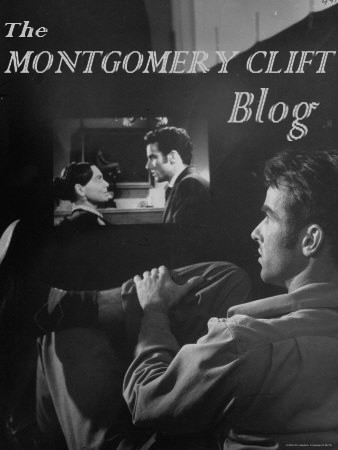





.-+albornoz+(4)+BLOG.jpg)
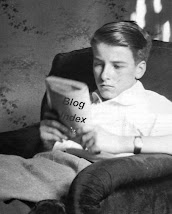
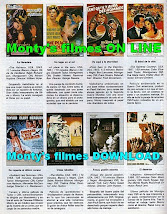


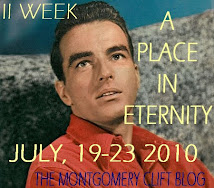











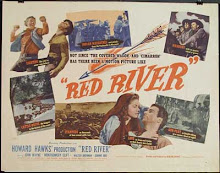
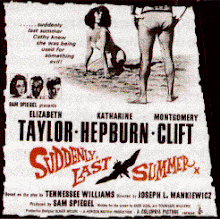



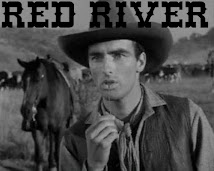
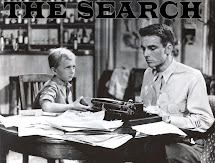

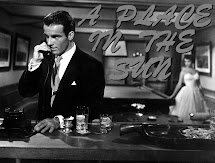2.jpg)
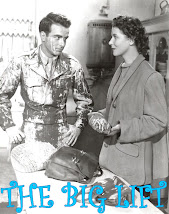.jpg)
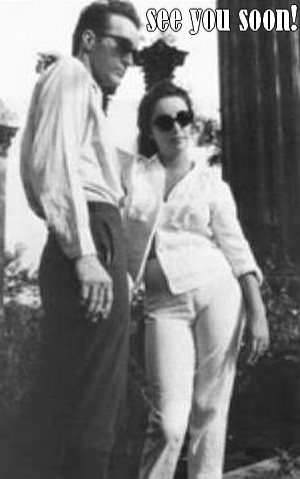

.jpg)

